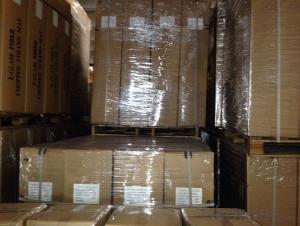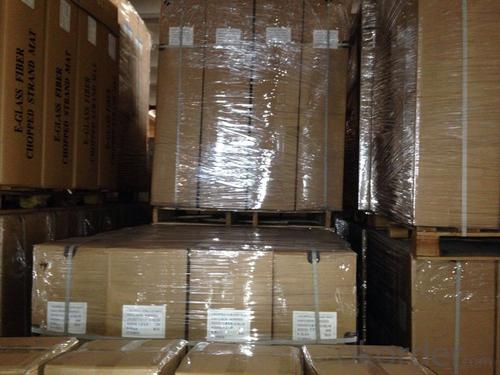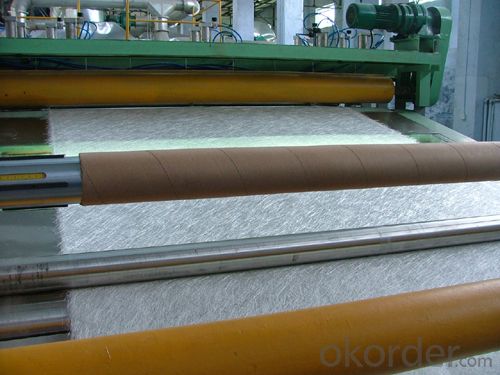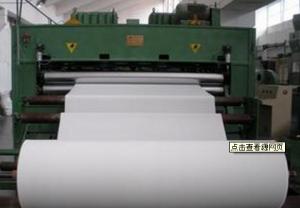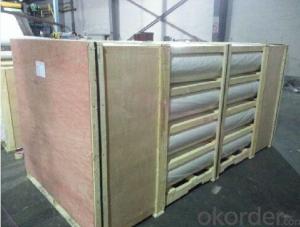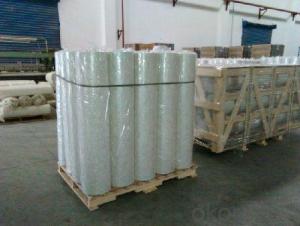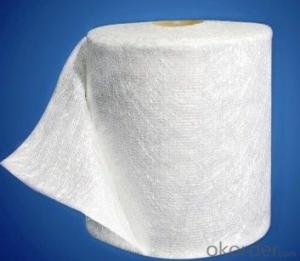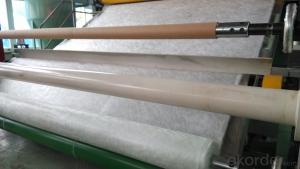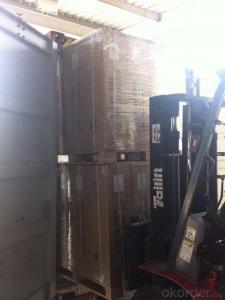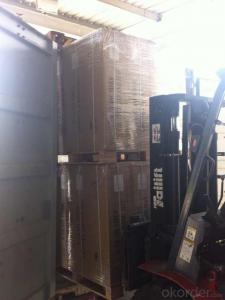Fiberglass Mat Tissue Emulsion Binder E Glass Chopped Strand Mat
- Loading Port:
- Shanghai
- Payment Terms:
- TT OR LC
- Min Order Qty:
- 1000 kg
- Supply Capability:
- 100000 kg/month
OKorder Service Pledge
OKorder Financial Service
You Might Also Like
Emulsion Binder E glass Chopped Strand Mat
Product description of Fiber Glass Powder Emulsion Chopped Strand Mat
Glass Fiber Emulsion Binder Chopped Strand Mat is an unwoven fabrics consisting of randomly distributed chopped strands held together with Emulsion Binder.
Emulsion Binder Chopped Strand Mats are compatible with unsaturated polyester, vinyl ester, phenol and epoxy resins.
Specification of Emulsion Binder E-Glass Chopped Strand Mat
Property | Glass type | Weight(g/m2) | Width 200~3300 | Roll Weight | Moisture Content /% | Combustible Content /% | Breakage Strength /N |
Test Method | GB/T 1549 | ISO3374:2000 | ISO3374 | GB/T17470-1998 | ISO3344:1997 | ISO1887:1995 | ISO3342 |
EMC 80 | E-GLASS | 80±16 | ±5 | 6~50 | <0.2< span=""> | 13.6±0.35 | ≥200 |
EMC 100 | E-GLASS | 100±10 | ±5 | 6~65 | <0.2< span=""> | 9.5±0.35 | ≥170 |
EMC 150 | E-GLASS | 150±15 | ±5 | 6~97 | <0.2< span=""> | 8.0±0.35 | ≥40 |
EMC 225 | E-GLASS | 225±22 | ±5 | 6~150 | <0.2< span=""> | 5.0±0.6 | ≥60 |
EMC 300 | E-GLASS | 300±30 | ±5 | 6~180 | <0.2< span=""> | 4.0±0.6 | ≥90 |
EMC 450 | E-GLASS | 450±45 | ±5 | 6~180 | <0.2< span=""> | 3.8±0.6 | ≥120 |
EMC 600 | E-GLASS | 600±60 | ±5 | 6~240 | <0.2< span=""> | 3.6±0.6 | ≥150 |
EMC 900 | E-GLASS | 900±90 | ±5 | 6~190 | <0.2< span=""> | 3.4±0.6 | ≥180 |
Characteristics of Emulsion Binder E Glass Chopped Strand Mat
1.Uniform density ensures consistent fiberglass content and mechanical properties of the composites products;
2.Uniform powder distribution ensures good mat integrity, little loose fibers and small roll diameter;
3, The composite products have high dry and wet tensile strength and good transparency.
4, Optional for high strength with stiff mat for panel laminating and midle strength with soft mat for hand layup.
Package:
1, the Mat roll will be wrapped in PVC/PE film, then packed with carton boxes;
2, Vertically placed on bottom pallets by:
4 rolls*4 rolls or 4 rolls* 5rolls
Horizontally placed on upper pallets by:
3 rolls*4 rolls
3, the whole pallet will be fasten by PVC strips;
4, the whole pallets will be wrapped by strentchable PE film.
FAQ:
1. What is your MOQ?
Our MOQ is one pallet.
2. Can you provide sample?
Yes, we can offer free sample for you.
3. Payment terms?
We can accept L/C, T/T etc.
4. Do you offer OEM service?
Yes, we can print customers’ logo on the packaging;
And the size and specification can be produced and design according to your demand.
5. What is the Production Lead Time?
1 *40HQ each day.
6. What kind of standard of the mat?
ISO9001-2008
GS Certificate (special for automotive industries)
DNV Certificate (Special for Marine)
LIyod
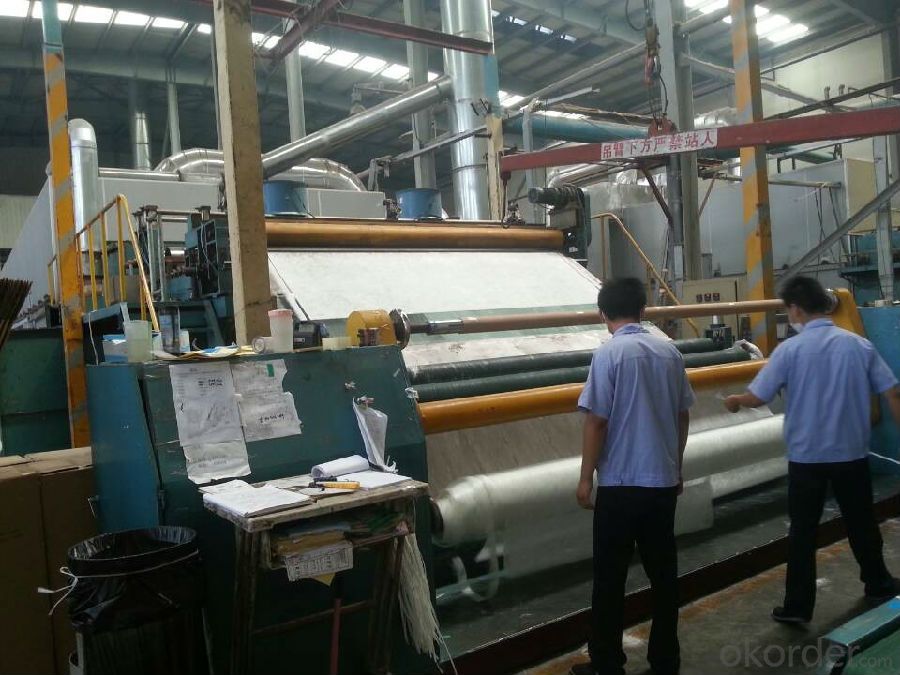
- Q: Can fiberglass mat tissue be used for aerospace applications?
- Indeed, fiberglass mat tissue proves to be suitable for aerospace applications. This lightweight and robust material finds extensive use in the aerospace industry for various purposes. It is frequently employed as a reinforcing material in composite structures, including aircraft wings, fuselages, and other components. The exceptional strength-to-weight ratio of fiberglass mat tissue makes it a favorable choice for aerospace applications, aiding in the reduction of overall aircraft weight without compromising structural integrity. Furthermore, fiberglass mat tissue exhibits resistance to corrosion and can withstand extreme temperatures, both of which are crucial considerations in aerospace environments. In conclusion, fiberglass mat tissue is a versatile material that meets the rigorous requirements of aerospace applications and is widely embraced within the industry.
- Q: Can fiberglass mat tissue be used for insulation in cold environments?
- Yes, fiberglass mat tissue can be used for insulation in cold environments. It has excellent thermal insulation properties and is commonly used in construction to provide insulation against cold temperatures.
- Q: Can fiberglass mat tissue be used for insulating radiant floors?
- Indeed, insulating radiant floors is possible with the use of fiberglass mat tissue. This material, known for its exceptional thermal properties and moisture resistance, is widely favored for insulation purposes. Specifically engineered to enhance the strength and endurance of the insulation layer, fiberglass mat tissue effectively inhibits heat loss and enhances energy efficiency in radiant floor systems. By creating a shield between the heated floor and the colder ground or subfloor, it effectively prevents heat escape. Moreover, installing fiberglass mat tissue is hassle-free, as it can be easily tailored to fit any desired shape or size. This remarkable adaptability makes it a versatile option for insulating radiant floors.
- Q: Is fiberglass mat tissue biodegradable?
- Fiberglass mat tissue does not possess biodegradable properties. It is an artificial substance composed of delicate glass fibers intricately interwoven to form a resilient and long-lasting material. These fibers do not undergo natural decomposition, rendering fiberglass mat tissue to be non-biodegradable.
- Q: Can fiberglass mat tissue be used for repairing fiberglass jet skis?
- Yes, fiberglass mat tissue can be used for repairing fiberglass jet skis. It is a common material used in fiberglass repairs, providing strength and reinforcement to the damaged area.
- Q: Can fiberglass mat tissue be used for wind turbine blades?
- Yes, fiberglass mat tissue can be used for wind turbine blades. It is commonly used as a reinforcement material in wind turbine blade manufacturing due to its high strength, lightweight nature, and excellent corrosion resistance.
- Q: Can fiberglass mat tissue be used for repairing fiberglass surfboards?
- Repairing fiberglass surfboards can be accomplished using fiberglass mat tissue. This material is commonly utilized for reinforcing and fixing fiberglass structures, such as surfboards. Its lightweight nature, flexibility, and ease of use make it the perfect choice for patching up any cracks or holes in a surfboard's fiberglass shell. To bond the mat tissue to the surfboard's surface, epoxy resin is typically applied, resulting in a robust and long-lasting repair. Nonetheless, it is crucial to acknowledge that the success of the repair depends on the skill and technique of the individual performing it. If you lack experience in surfboard repairs, it is highly recommended to seek professional assistance or guidance.
- Q: Can fiberglass mat tissue be used for making lightweight stairs?
- Making lightweight stairs is possible using fiberglass mat tissue. This material, composed of randomly oriented glass fibers bonded with resin, is widely used in the construction and manufacturing industries because of its strength, durability, and lightweight nature. By layering and molding fiberglass mat tissue, it can create a sturdy yet lightweight structure for stairs. Its impressive tensile strength and dimensional stability make it capable of supporting the weight of individuals using the stairs. Additionally, fiberglass mat tissue is resistant to moisture, chemicals, and UV rays, making it perfect for outdoor or high-moisture environments. Its fire-resistant properties further enhance its suitability for stairs, ensuring safety. In conclusion, fiberglass mat tissue is an excellent option for crafting lightweight stairs due to its combination of strength, durability, and resistance to various environmental factors.
- Q: Can fiberglass mat tissue be used in corrosive environments?
- The resistance of fiberglass mat tissue to corrosion relies on its specific composition and quality. It can be used to some extent in corrosive environments. Fiberglass mat tissue is manufactured by combining fiberglass strands with a binder material. Although fiberglass itself is generally resistant to corrosion, the binder material used in the mat tissue can vary and impact its resistance to corrosive environments. Certain binders may offer better protection against corrosion, while others may be more prone to degradation. To enhance the corrosion resistance of fiberglass mat tissue in corrosive environments, it is possible to apply additional protective coatings or treatments. These coatings create a barrier against corrosive elements and prolong the material's lifespan. To determine the suitability of fiberglass mat tissue for a specific application, it is crucial to consider the particular corrosive environment and seek advice from experts or manufacturers. They can provide guidance on the ideal composition, treatment, and necessary precautions to ensure optimal performance and durability in corrosive environments.
- Q: Can fiberglass mat tissue be used for repairing fiberglass truck beds?
- Yes, fiberglass mat tissue can be used for repairing fiberglass truck beds. It is commonly used in such repairs due to its strength, durability, and ability to bond well with the existing fiberglass surface.
Send your message to us
Fiberglass Mat Tissue Emulsion Binder E Glass Chopped Strand Mat
- Loading Port:
- Shanghai
- Payment Terms:
- TT OR LC
- Min Order Qty:
- 1000 kg
- Supply Capability:
- 100000 kg/month
OKorder Service Pledge
OKorder Financial Service
Similar products
Hot products
Hot Searches
Related keywords
